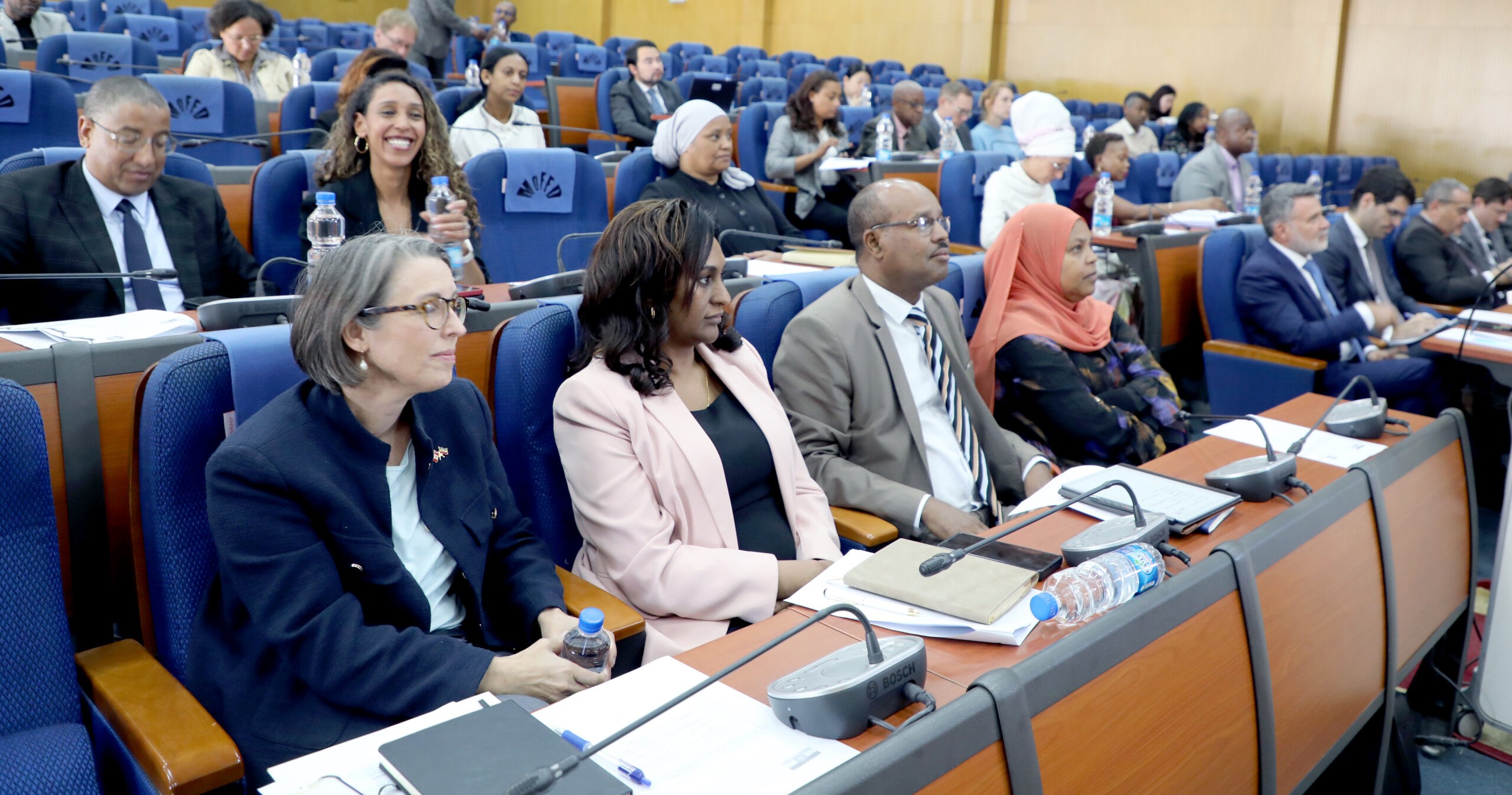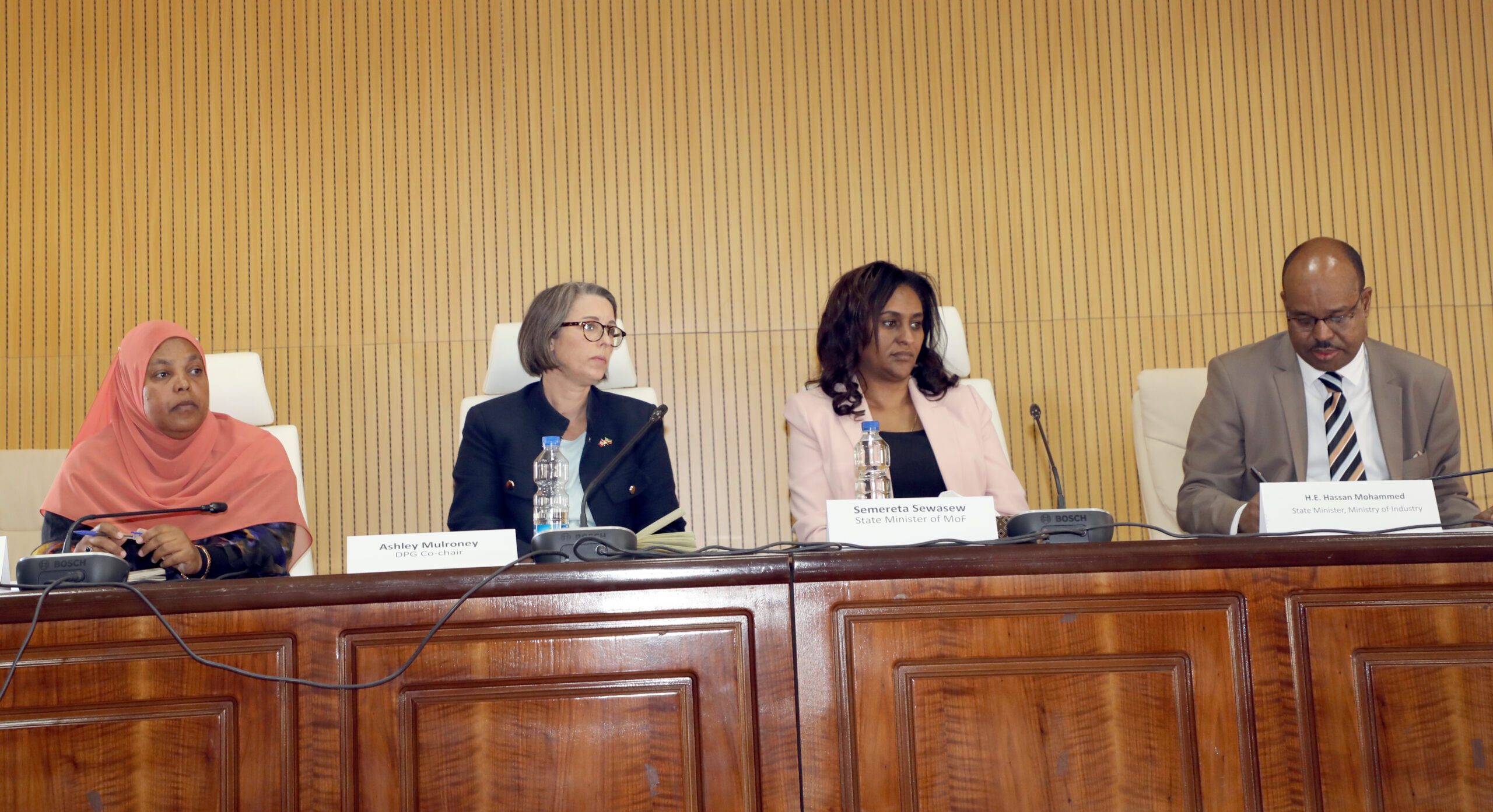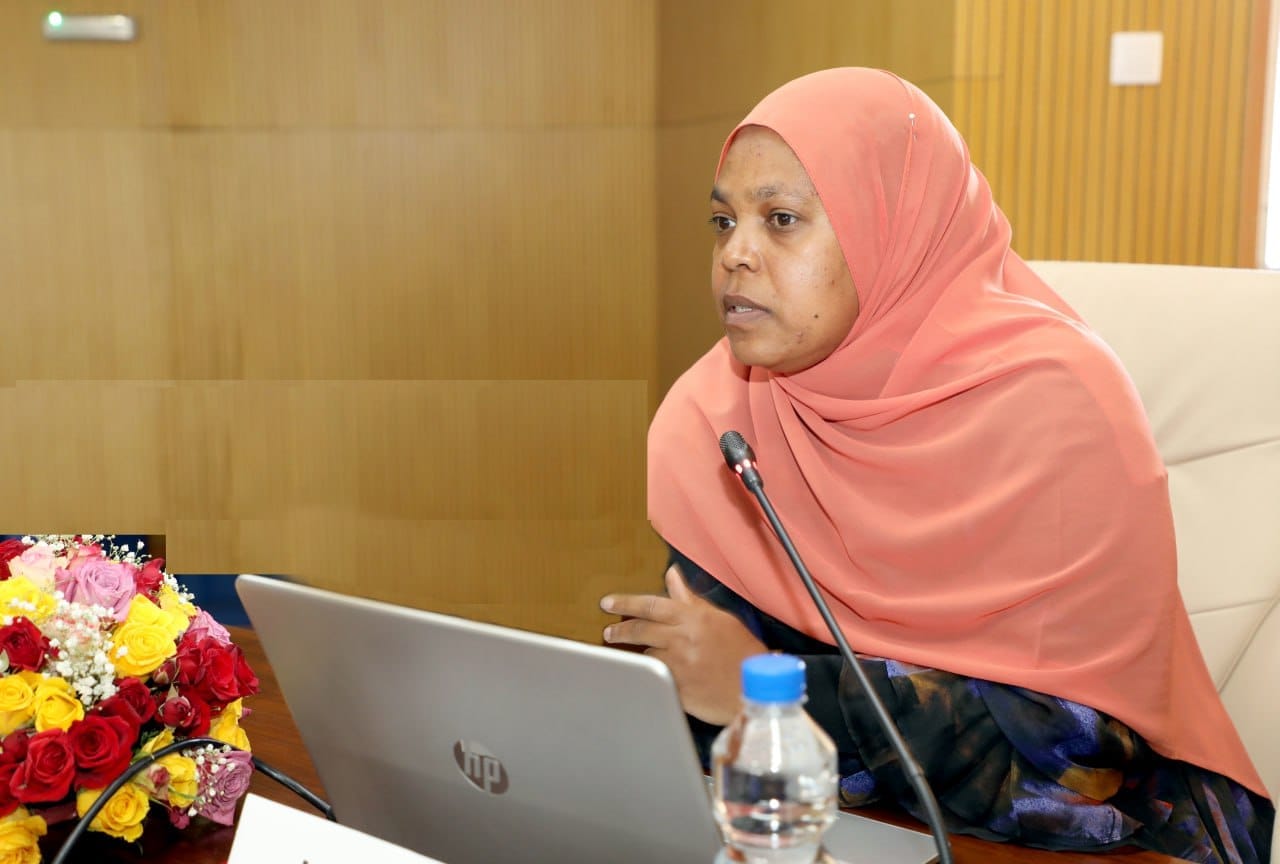DPG Heads of Agencies Meeting Showcases Progress and Future Directions in Manufacturing and Labor Sectors
27 November, 2024

Nov 26, 2024 – Recent data underscores Ethiopia’s significant strides in economic development, with a particular focus on the manufacturing and labor sectors. At high level Development Partners Group (DPG) Heads of Agencies Meeting on Industry, Labor and Skills Development Sector Reform meeting, the Ministry of Industry disclosed as the manufacturing sector witnessed a remarkable increase in investment over the past year, signaling strong confidence from both local and foreign investors.
At the same time, the DPG Heads of Agencies meeting held at the Ministry of Finance, has also learnt that the Technical and Vocational Education Training (TVET) system has successfully trained over 7.8 million individuals in the past two years, with 3.5 million trained in the previous year alone.
H.E. Hassen Mohammed, the State Minister of Industry provided an encouraging outlook on Ethiopia’s manufacturing landscape, underscoring the government’s dedication to the the Ethiopia Tamrit Movement or “Made in Ethiopia” initiative. A remarkable 40% increase in sector investment over the past year and set an ambitious goal of raising the manufacturing sector’s contribution to the national GDP from 6.8% to 17.2% by 2030, it was reported.

The manufacturing sector reform is supported by the Homegrown Economic Reform Agenda and the Ten Years Development Plan, which underlines the establishment of industrial clusters, import substitution, and enhanced export promotion.
The Ministry also told the gathering that an Import substitution initiative enables the country to save $2.8 billion in foreign currency over recent years as well as an increase in domestic market share for manufacturing to between 40% and 50%.
While celebrating these achievements, it was acknowledged that ongoing challenges, such as macroeconomic instability, limited access to financing, and infrastructure gaps, are critical to addressing in order to strengthen the manufacturing sector further.
With the same token, H.E. Muferihat Kamil, Minister of Labor and Skills emphasized the urgent need for labor market reforms. H.E. Muferihat noted the necessity to equip Ethiopia’s large youth population with the skills needed to thrive in an evolving job market and underscored the ministry’s commitment to promoting job creation and industrial peace. She also highlighted important accomplishments stemming from the Technical and Vocational Education and Training (TVET) system, which has successfully trained over 7.8 million individuals and help to generate 9.6 million quality jobs in the past three years.
In the same timeframe, H. E Muferihat Kamil told the gathering that 57,000 trained and certified Ethiopians secured employment abroad, contributing to the economy. Notably, 345,000 individuals were sent abroad for employment opportunities in 2016. It was also reported that Ethiopia has ascended to 10th place in the global entrepreneurship ranking within just three years, highlighting a progressive entrepreneurial climate.

The meeting concluded with an interactive question-and-answer session that sparked vibrant discussions among participants. Topics included customs efficiency, the engagement of the private sector, and the significant role of Artificial Intelligence in training initiatives. Both ministers reiterated their commitment to cultivating an environment that supports private sector-driven growth and sustainable economic advancement.
H.E. Semereta Sewasew co-chair of the DPG Secretariat and State Minister of Ministry of Finance expressed gratitude to all participants for their insights and reaffirmed the government’s dedication to partnering with stakeholders to promote robust economic growth and development across Ethiopia.
She also noted that the meeting as a journey that needs to scale up underlining the importance of ongoing collaboration remains essential for addressing challenges and unlocking opportunities in the manufacturing and labor sectors.
Various organizations, including the World Bank, the UN, EU and other development partners participated in the DPG meeting.